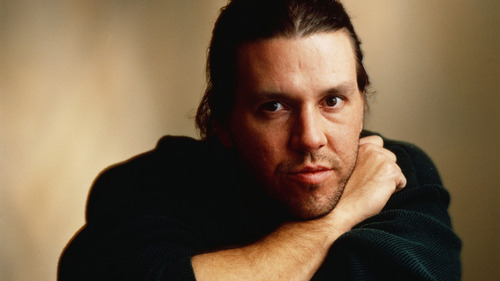
A Survey of Writers on Contemporary Writers
Listening to writers read and discuss their work at Newtonville Books, the bookstore my wife and I own outside Boston, I began to wonder which living, contemporary writers held the most influence over their work. This survey is not meant to be comprehensive, but is the result of my posing the question to as many writers as I could ask.
DAVID FOSTER WALLACE

© animalnewyork.com
KATHLEEN ALCOTT: In a way it’s embarrassing to name David Foster Wallace as an influence because such a grotesque has been drawn of him since his death in 2008—but I spent pretty much all of my 18th and 19th years reading and re-reading him, and feeling both sothreatened and excited that someone alive was writing like that. I was thrilled
by the stories and essays and novels in which the reader was asked to work
almost as hard as the writer, and it left me less intimidated about the act of
creation.
CHARLES BOCK: It’s hard
to overstate the bomb effect of Infinite
Jest on the New York literary world.
One thing that was hugely influential on me: IJ’s honking long paragraphs that were actually fun to read. They had an internal rhythm and pace to
them. They had jokes. One liners galore but not enough to break
your pace. Sometimes Mister Big Book, as
I called him to my sister and friends, got too clever for his own good and
structured a grand thought around a word that you had to look up, and that sort
of derailed the fun. But I came to think
of those paragraphs as something to look forward to, like big thick slices of
chocolate cake. You start to nibble and
you get in and soon you are in love. I
was one who did not tire or get sick of the cake. When I finished one big para, it was exciting
that there was another one waiting for me.
How many long amazing set pieces are in that novel—the guy whose tried
to quit smoking pot waiting for his supplier to call or stop by and freaking
out to where he splits himself in half when the phone and doorbell ring
simultaneously; Kate Gompert ending a long dialogue with a physician by begging
for shock therapy; the PGOAT deciding to try and off herself at that New Year’s Eve party; the listings of tattoos inside the rehab center; things that a
person learns when they go into rehab; these are off the top of my head and I
can do a lot lot more.
But really
it was that...
You have reached your article limit
Sign up for a digital subscription and continue reading all new issues, plus our entire archives, for just $1.50/month.
Already a subscriber? Sign in




